Welcome to the weekend with your Friday Mailbag. This week, I answer two very good questions about BMW OEM tires and wheels.
If you’d like to participate, drop me a question at mike@machineswithsouls.com. And don’t worry, you’ll remain anonymous.
Question 1
Hey Mike. I recently had to purchase new tires for my 328, and the dealer gave me a few choices in regards to the brand. Do I need to keep the original brand, or can I go with something different?
– Brad
Answer
Brad, you got lucky, because I got unlucky. A few weeks ago, I got a nail in my M3’s tire. The dealer did not have a new Michelin Pilot 4S for me to mount (it’s a two-month wait), and they refuse to patch any tire. So they offered me a Michelin Pilot Super Sport. Similar tire, but not the same.
We’ll get back to me in a minute. Let’s explain.
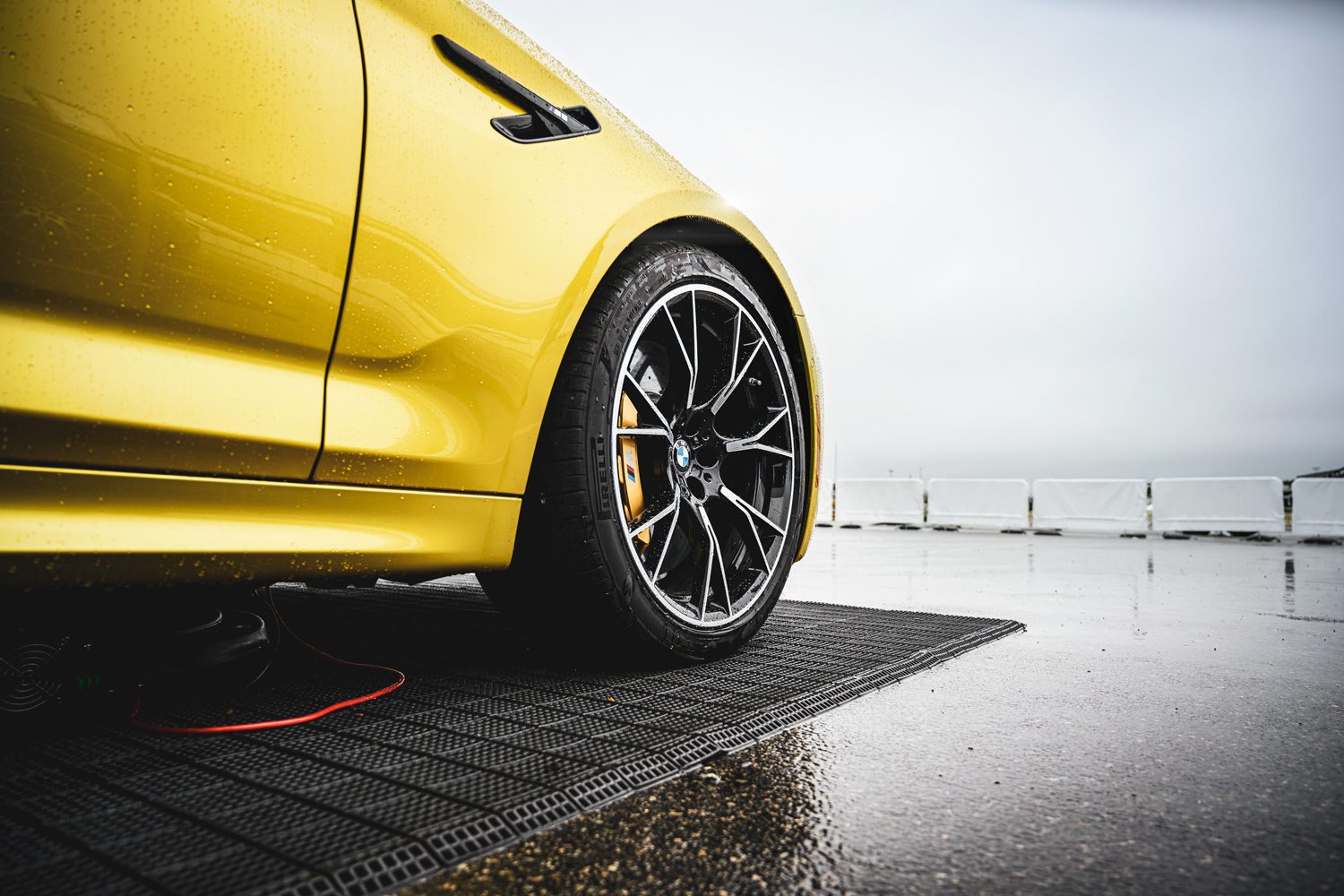

Suspension of (dis)belief
While there is no “big BMW” building that actually makes all the parts, they are made to BMW’s specifications. That means that BMW designs a door handle, they find someone to make it and ship them the part, and on it goes at the BMW factory.
Tires are a little different. They are the most important part of the car, for obvious reasons. When it’s time for BMW to calibrate the suspension of a new car, they will go to multiple tire makers and ask “sup?”. Ed note – if you’ve ever wondered why BMW uses multiple tire manufactures, it’s because they want to keep an open supply line and keep multiple companies happy with orders for tires.
Anyway, Michelin or whomever offers up some tire choices, BMW mounts them on a prototype, and they work together to tune the suspension. The result is a compromise. BMW can’t tune the suspension to the exact spec they want because of the standardized tire design, but they don’t have to tell Michelin to design a tire from scratch, which would be cost prohibitive. That’s why an Audi A4 might have the same tires as your 328 from the factory.
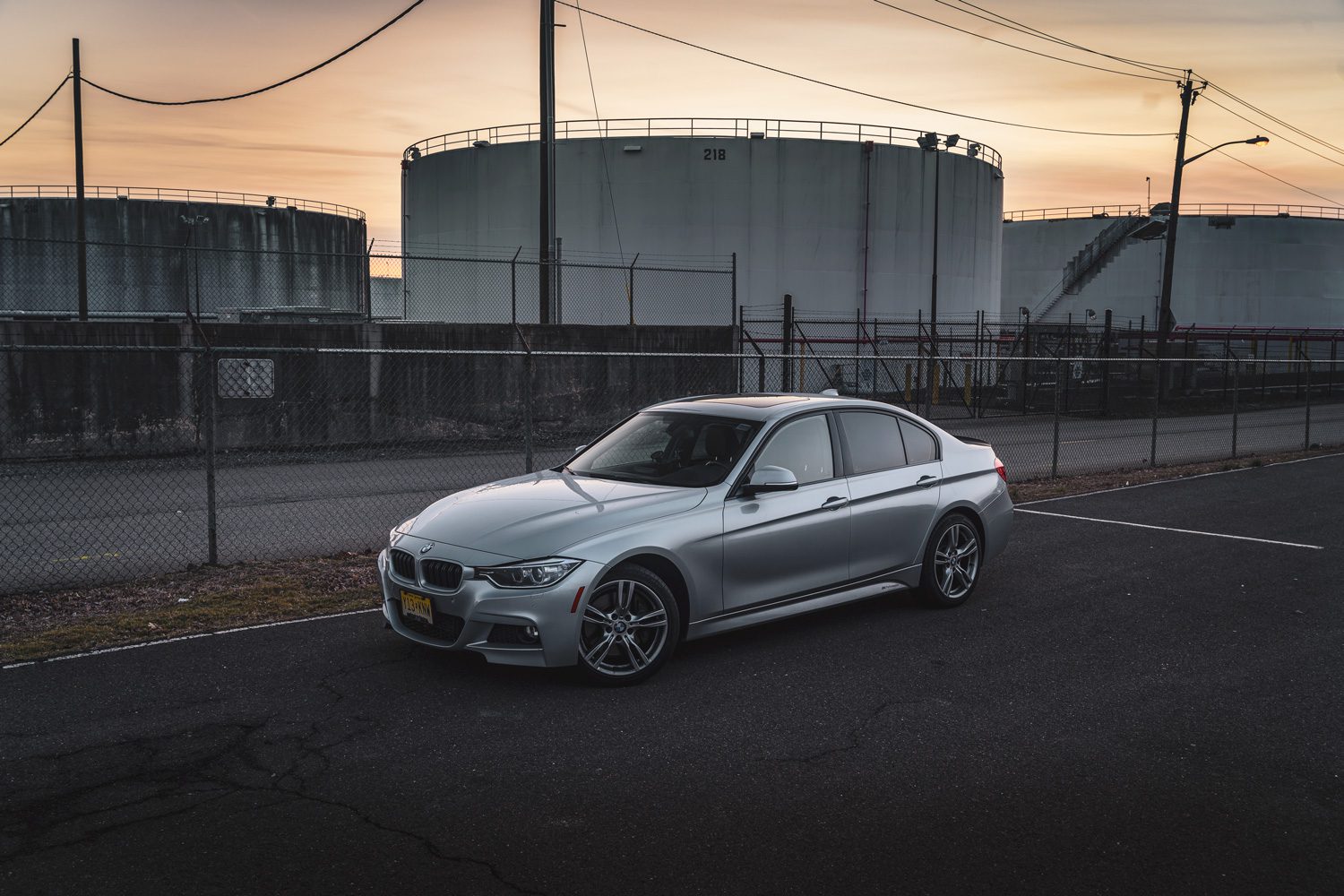

Neo
BMW will test the car with all the different tires they’ve specified, meaning you get a car with the promised performance, regardless of tire make. But they really only develop the suspension for “one” tire (they never tell you which one it is so no one gets upset when their car doesn’t have it). Like tuning Metallica’s guitar for a specific concert hall, it’ll sound good anywhere, but it’ll sound best there.
When I had my E92 M3, it came with Continental tires mounted. This was a sad moment in an otherwise thrilling delivery day, because I lost the tire lottery. I wanted the Michelins (PS2s at the time, I believe). The Contis were fine, but I noticed reduced steering feedback and slightly greasy feel at the limit on track compared to other E9Xs I drove with PS rubber. And no, I do not know how BMW determines what car gets what tire at the factory, aside from the fact that they alternate by month. And right now, post-COVID, I’m not even sure that’s true.
Would all this matter on your 328, Brad? Probably not. If the price difference or availability makes original replacement not possible, then yes, you can use another tire they recommend, and you might not notice a difference. Or, you might notice an improvement depending on what tire you originally had.
But sometimes…
Star power
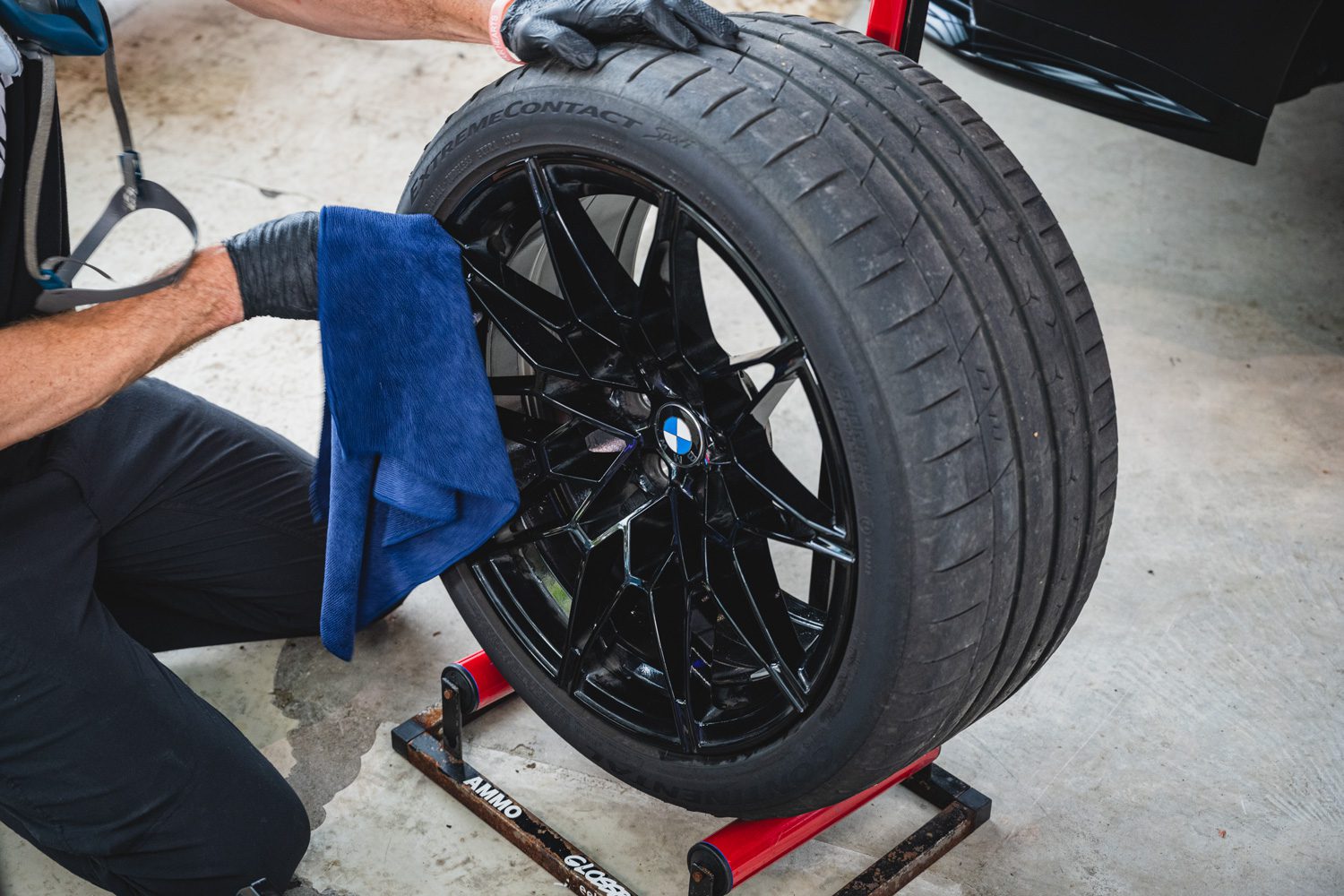

If you look at the tire sidewall on a regular modern BMW, it most likely has run-flat tires, and they have a star on the side to note that.
However, most M cars do not come with run-flats, including my G80 M3. So I never noticed that my tires have a star on the side as well. That star means something very different on this car.
Here’s where my misfortune led to a learning moment.
I’ve heard of some companies working hand-in-hand to design specific tires for cars, but it’s almost always higher-end. Porsche, Ferrari and the like.
For the G80, BMW decided that the standard Michelin PS4s weren’t good enough, so they created a bespoke tread and compound design meant just for the M3 and M4. That means that not only were the Super Sports my dealer recommended not correct (to say nothing of having a mismatched front axle), but that even a standard PS4 wouldn’t be the right match.
“Mike, come on, a regular PS4 is fine”. Yes, the M3 won’t steer into the weeds if I put on a regular PS4, but BMW went to an awful lot of effort to perfect the tires for this car. I doubt they would do it for no reason.
If you’d like to see why, this video demonstrates the difference.
As for me, I got the tire patched at a tire shop for now, and when the new PS4 comes in, on it will go.
Question 2 – Wheel size
I want to order the 2023 BMW X7 40i, Do you feel the 23 inch wheels will compromise the ride quality?
– Tim
Answer
This depends on a few things, Tim.
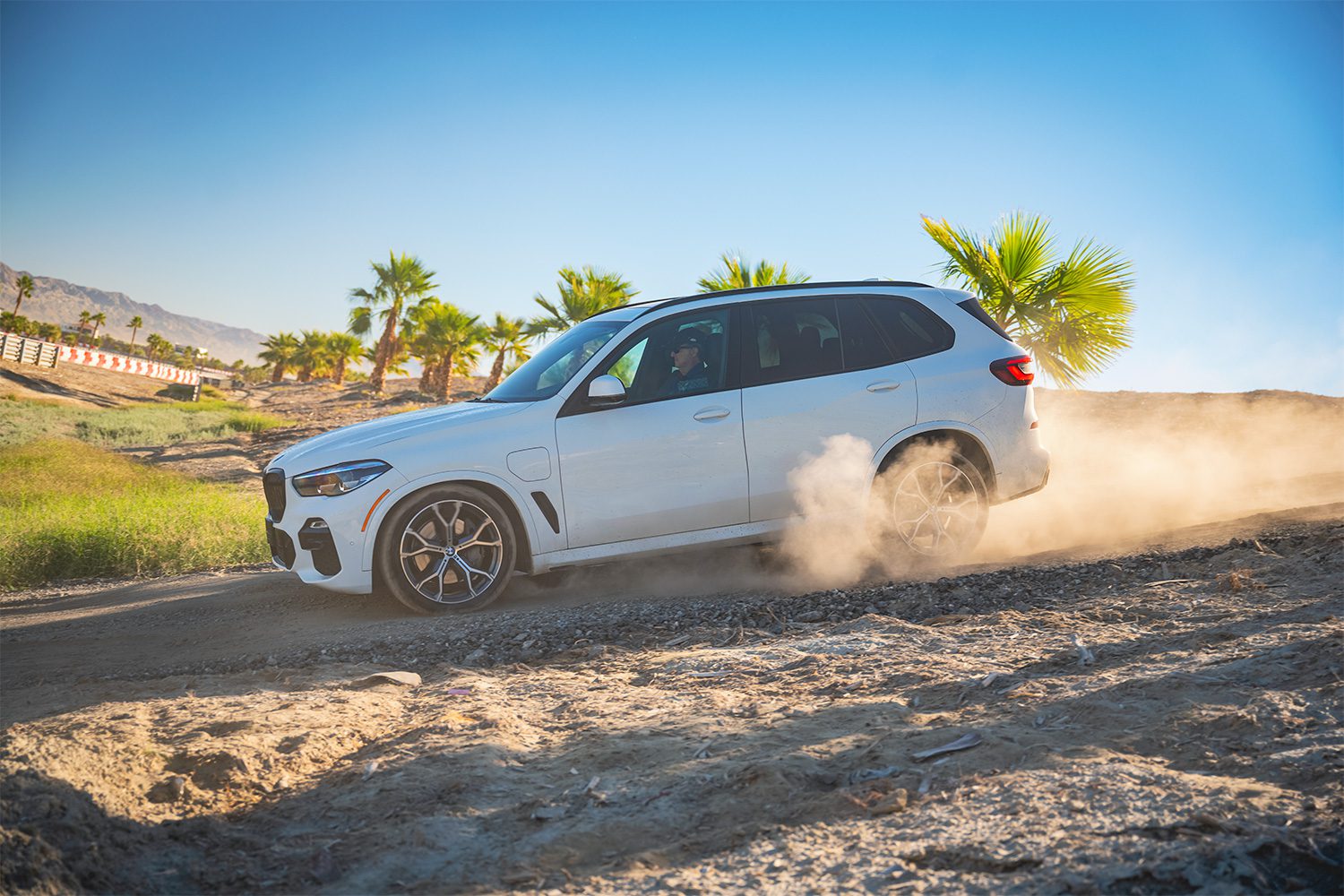

Size does (not) matter
First, always test drive the car you want to buy if at all possible. I realize the current climate may not allow you to do that, so try what you can.
Now, are you concerned about performance? If so, check the width of the tire. A quick look up shows the X7 with 22-inch wheels has 275/40 front, and 315/35 rear tires. This matters because often, going with a larger diameter tire still provides the same width (in this case, 315mm in the rear). I couldn’t find the 23-inch wheel size because the car is new, but I’m willing to bet it’s the same 315 width in the rear. BMW uses this “trick” often, including the base M3 18-inch wheels.
Road rumble
How are the roads by you? If they are decent, you probably won’t notice any difference. If they are not…you still won’t notice a difference. I’ll explain.
The other number in a tire measurement, in this case the 40 front, and 35 rear, is the profile of the tire. The lower the number, the lower the profile, and the cooler you look. It’s the height of the sidewall measured from wheel rim to the top of the tread, expressed as a percentage of tire width. So, this tire is 35% as tall as it is wide.
Enough maths though, because I bet once again BMW will give you the same profile number in both 22 and 23-inch configuration. While the 23s may be a bit more harsh because the wheel itself is heavier, you won’t notice. The profile on these tires is pretty low, meaning less cushion for road impacts. It’s the price of beauty.
Because in the end this is about looks, and how you feel walking up to the car each day. Will you love it more with bigger wheels? If you answered yes, then that’s the answer for your wheel question Tim.
See you next week!
Commissions may be received for product links on this site. Help out if you can.
I use Nikon camera bodies and lenses, a Westcott Ice Light 2, Manfrotto tripod, B + W filters and an iMac Pro to make the art you see here.
Email me at mike@machineswithsouls.com with any questions. Follow along on Instagram @machineswithsouls




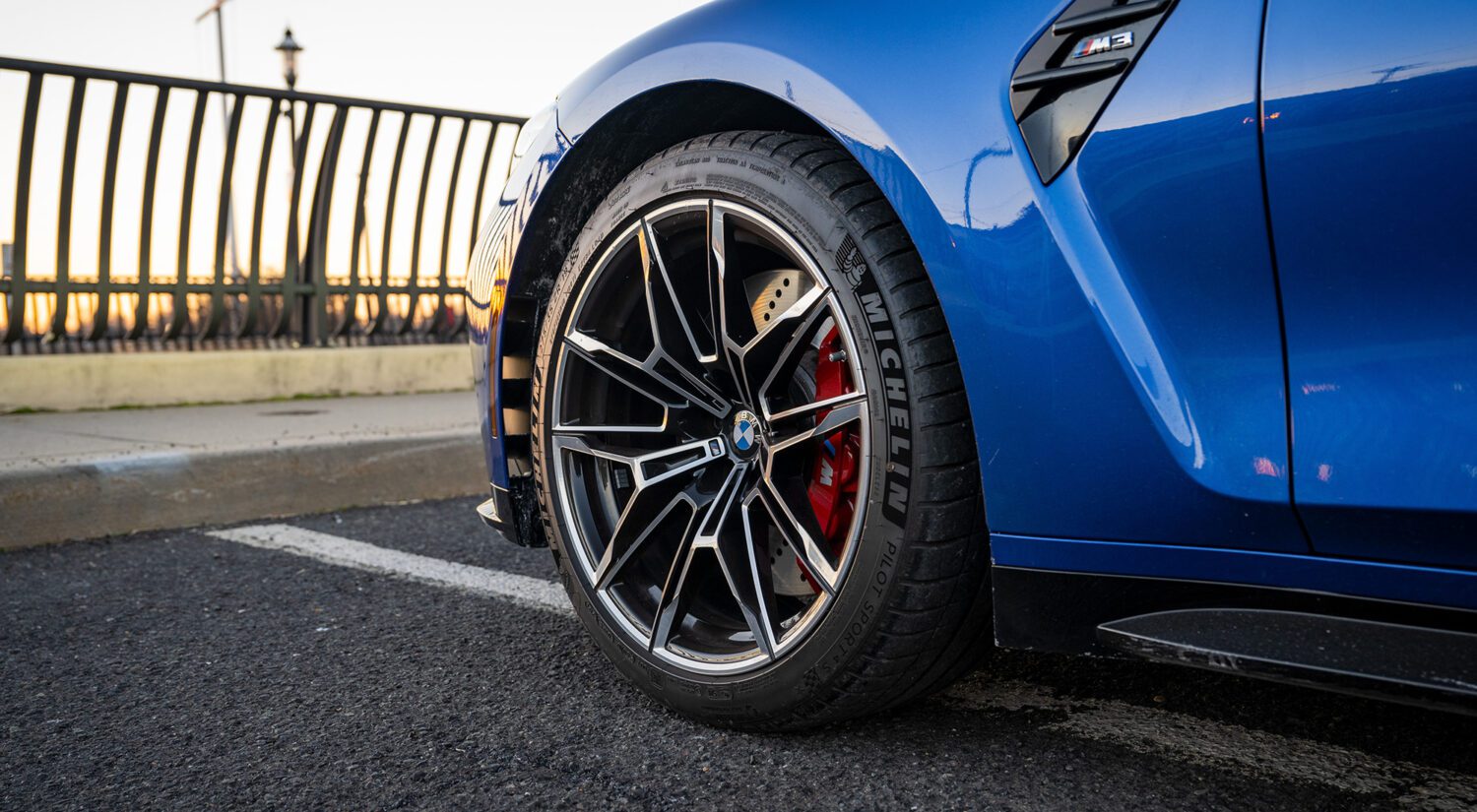
One thought on “Friday Mailbag: Do BMW OEM tires matter?”